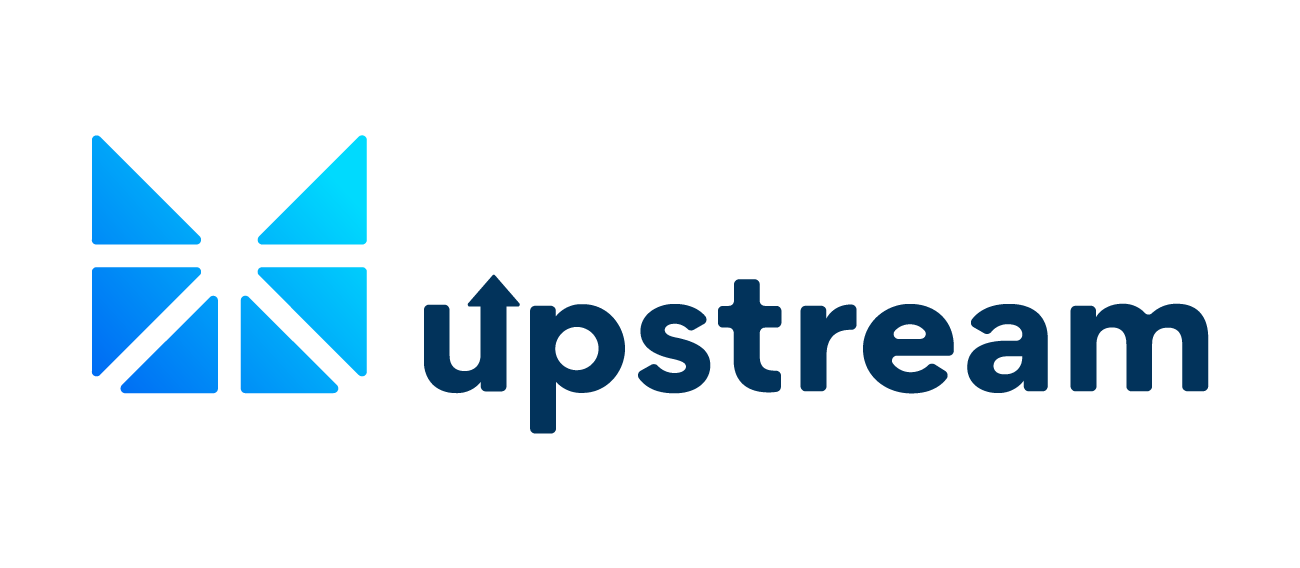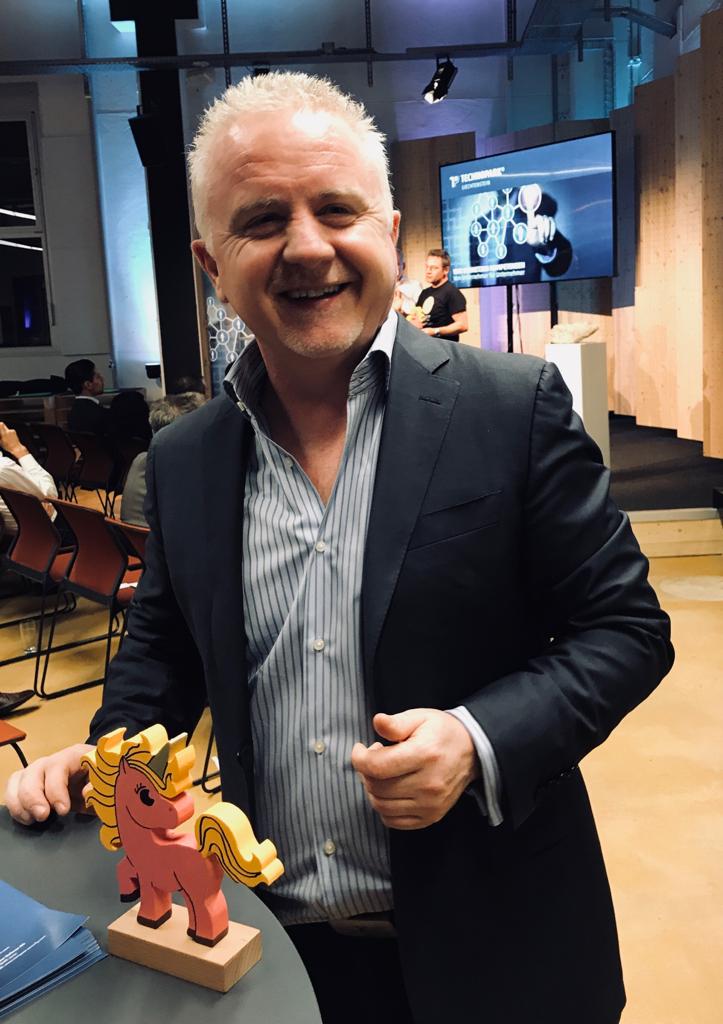By Severin Kranz and translated into English by Sandra Quinn
Original article published on Medium on October 8, 2018 read the full article in German here.
Brian Collins, CEO and Founder of Horizon Globex presented his business at the second blockchain pitch-in Liechtenstein, speaking abotu the development of blockchain applications. The talketh.io presentation is an example of how human-centred blockchain applications need to be designed to create multidimensional value.
According to Falk Uebernickel et al. (2015, p. 22), radical customer orientation and integration in the innovation process can create the greatest added value by ensuring that innovations are accepted by the market and that risks and errors are recognised early on.
Lewrick and Di Giorgio (2018, pp. 99-100) further point out that for blockchain applications, as with most successful digital solutions, the user should be at the centre. Accordingly, in the development of blockchain applications, a product or service has to be developed, which solves a concrete problem of the user or satisfies an unsatisfied need. On the other hand, a simple and understandable use should be sought. Anyone who has ever bought Bitcoin or Ethereum and then has downloaded it on a digital wallet knows that the user-friendliness in dealing with cryptocurrencies today still has a strong potential for improvement.
With the presentation of the platform, talketh.io, Brian Collins has presented a telephone solution on the Ethereum Blockchain, which is both easy for the end user to use, as well as completely tailored to his needs and thus solving an existing problem.
“Blockchain applications need to be as frictionless and easy to use for the end consumer as possible” (Brian Collins, Presentation, October 3, 2018).
Talketh.io uses innovative Voice over IP (VoIP) technology to connect unbanked smartphone users from different emerging markets as cheaply as possible with relatives or acquaintances in other countries. Compared to traditional pre-paid SIM cards, Talketh allows international calls at a fraction of the cost. Contrary to other internet telephone services, such as Viber, Skype or WhatsApp, Talketh comes with a very small data volume and works with 2G or Edge. Thus, Horizon Globex accesses regions in the Middle East, South East Asia, Latin America and the African market through internet telephone services. These regions usually show a strong increase in smartphone penetration, in some cases poorly developed mobile networks (Talketh, 2018, p.7).
Talketh is the world’s first Internet telephone app that accepts cryptographic call credit from the blockchain (Talketh, 2018, S. 7).
However, in addition to the innovative technology, the project has two main aspects compared to other Initial Coin Offerings (ICO’s):
The end consumer does not realise that they are using a blockchain application.
Unlike other tokens, Talketh eludes any speculation on crypto exchanges.
How is that possible?
From a user perspective, internet phone services via Talketh are very easy; the user buys a scratch card at a nearby kiosk/point of sale with a code that corresponds to a fixed amount of money.
Via the Talketh app, downloaded from the Google Play Store or App Store, after they enter the purchase code, they can easily call their contacts as usual. If the credit has been used up, the user buys a new code. However, unlike buying credit on an ordinary SIM card, Talketh calculates telephone calls for only a minimal portion of the cost.
Where does the blockchain come into play?
So far, it all sounds pretty straight forward. While the customer process (apart from the cheaper price) for the purchase of credit for a pre-paid SIM hardly differs, the processing runs in the background on the Ethereum Blockchain. The smartphone application forms the top layer of the application as user interface.
The purchase of the scratch card at the local point of sale corresponds in reality to the purchase of the VOX token from Talketh and the included code is the private key for the wallet application, which runs in the background.
The VOX token is an ERC20 token on the Ethereum platform, which is not traded on any regular crypto exchange. Thus, the end consumers (buyers of the scratch card) are also the only buyers of the VOX tokens and represent the complete demand side of the token. The supply side, on the other hand, is managed via a specially developed decentralised stock exchange (DEX), on which investors can bid and benefit from a margin.
Why is the blockchain needed for this?
Not unjustly, Lewrick and Di Giorgio (2018, p. 148) point out that traditional standard applications and centralised databases are often far more efficient and appropriate than a blockchain architecture. On explicit demand, Brian Collins argued that using the Ethereum platform would make it unnecessary to acquire a banking license for the business model (Personal Communications, October 3, 2018). In addition, the architecture created enables automated transaction processing and solves the double-currency problem of digital currencies. In its white paper, Talketh discusses the benefits of using a blockchain as follows:
“Blockchain provides secure e-wallets which are a scalable way to serve the financial needs of the unbanked” (Talketh, 2018).
In summary, through an innovative technology on a very attractive market, Talketh offers a low-cost telephon service, which already works today. Unbanked citizens can easily use the app through their smartphone without even knowing that they are transacting on the blockchain. The token economy of the VOX token is unique and well thought out. Whether or not Talketh will appeal to their app in the mass market of the targeted emerging markets will still be apparent. What is certain, however, is that the user-centric implementation of the blockchain sets a standard that most of the existing applications have not yet achieved.
Sources:
– Horizon Globex Gmbh (2018a). Talketh (v.2.3.18) [mobile application software]. Retrieved from https://play.google.com/store/apps/details?id=io.talketh&hl=en_US
– Horizon Globex Gmbh (2018b). Talketh (v.2.3.47) [mobile application software]. https://itunes.apple.com/us/app/talketh/id1353796855?mt=8
– Lewrick, M., & Giorgio, C. (2018). Live from the crypto-valley: blockchain, crypto and the new business ecosystems. Vahlen: Munich.
– Talketh (2018). Whitepaper: Our vision. Retrieved from https://talketh.io/docs/TalkethWhitePaper.pdf
Uebernickel, F., Brenner, W., Pukall, B., Naef, T., & Schindlholzer, B. (2015). Design Thinking: The Manual. Frankfurter Allgemeine Buch.
About the author; Severin Kranz has been working as a fintech consultant and asset manager for several years. Since 2015, he has also dealt extensively with cryptocurrencies and distributed ledger technologies. Through his Masters in Business Innovation at the University of St. Gallen, he has specialised in business model innovation as well as human centered innovation through Design Thinking. www.linkedin.com/in/severin-kranz-16282b117
Disclaimer: This article combines technical literature with personal impressions and views of the author and in no way serves as financial advice. The author carries small investments of different cryptocurrencies.

